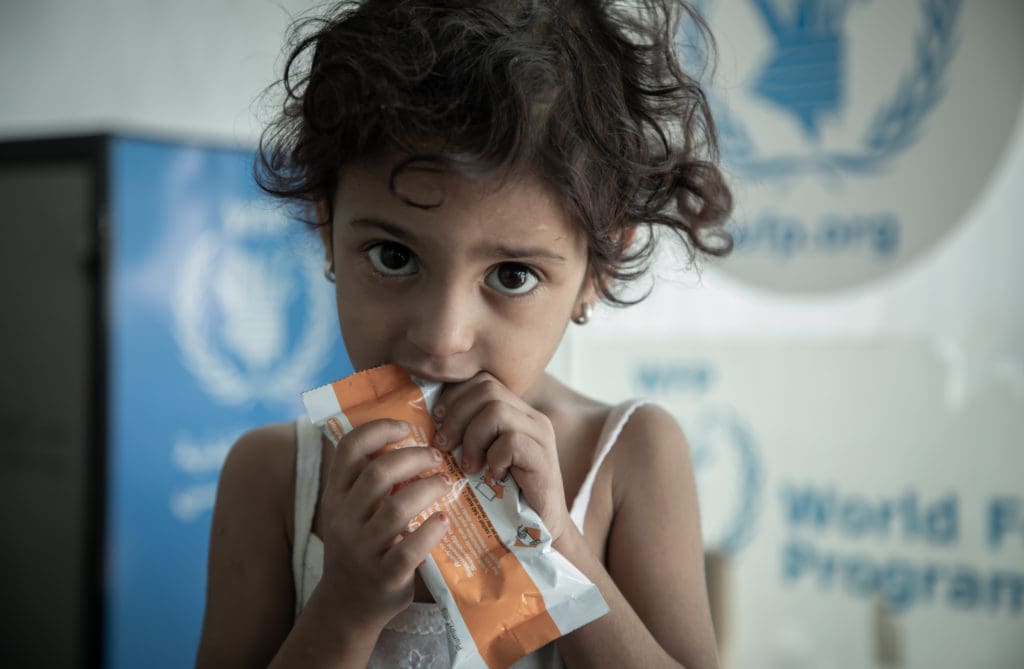COVID-19 Outbreak: How WFP Is Preparing to Help Families

I continue to watch with mounting concern as Covid-19 spreads across the world. The outbreak has been devastating to families worldwide and as such requires an unprecedented response from the humanitarian, government and business communities.
The United Nations World Food Programme’s (WFP) emergency teams are working hard to help tackle Covid-19. As a part of this critical effort, the U.N. World Food Programme is overseeing and implementing the supply chain and delivery (air, sea and land transportation) of critical supplies for all United Nations agencies – as they respond to the pandemic. In addition to maintaining lifesaving operations, the agency is prepositioning stocks of food, cash, mobile warehouses and tents for immediate delivery.
Because of supporters like you, we’re in a strong position to tackle this virus – but there is a tremendous challenge still ahead of us.
Right now, the U.N. World Food Programme is providing lifesaving medical equipment to help China’s frontline hospitals in Hubei support the government’s effort to combat COVID-19, including providing extracorporeal membrane oxygenation (ECMO) equipment and non-invasive ventilators (NIV) for treating critically ill patients. The first batch of 50 NIV was delivered today and ECMO equipment is scheduled to arrive in Wuhan on 18 March.
Over the past two years, the U.N. World Food Programme has successfully created “last-mile” supply chain networks for health care pharmaceuticals across sub-Saharan Africa and South Asia. Our supply chain team has additional experience helping combat the Ebola outbreak and with the delivery of tens of millions of mosquito nets into central Africa to combat malaria.
In addition to current efforts in China, the U.N. World Food Programme expects to provide similar support and is actively ramping up to be able to meet these needs. And the U.N. World Food Programme is committed to maintaining and, where necessary, scaling up its food assistance operations to reach the 86 million people who require food assistance.
The number of Coronavirus cases around the world is rising fast, crossing borders and threatening vulnerable, hungry populations. In places like Yemen, Syria and Bangladesh, health systems are already barely functioning, there is limited access to clean water, and sanitation products are out of reach for millions.
The U.N. World Food Programme is 100% voluntarily funded, so every airdrop, every $75 emergency box that’s delivered, every school meal is the result of someone’s compassionate decision to give.
For many people, the U.N. World Food Programme is their only source of food. Their only source of survival. The U.N. World Food Programme needs your help now more than ever to fight the twin threats of hunger and pandemic. Please — don’t wait until it’s too late. None of this can happen without the generosity of our supporters. Please consider making a donation today.
Barron Segar
President and CEO
World Food Program USA




